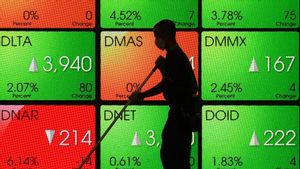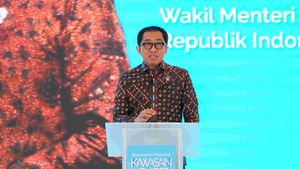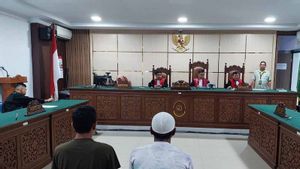JAKARTA - Daily Executive (Plh) Deputy for Economic, Employment and MSME Coordination at the Coordinating Ministry for the Economy Musdhalifah Machmud assessed that the development of digital technology could create around 67 million new jobs that require the transformation of new technological capabilities (skills).
But on the other hand, the rapid advancement of technology also has the potential to eliminate around 80 million jobs.
"With digital technology and utilization, we really need this expertise (technology) in this future, which we have to accelerate," said Musdhalifah during Media Briefing: Development of Digital Economic Policy, Employment, and MSMEs in Jakarta, quoted from Antara, Wednesday, June 12.
In his presentation, Indonesia's digital economy continues to increase from year to year. In 2023, it was recorded that Indonesia contributed about 40 percent of the market share of the ASEAN internet economy. The contribution of the digital economy is the largest of 10 ASEAN member countries.
Digital economy development is also considered to be able to deliver micro, small and medium enterprises (MSMEs) to transform digitally (go digital). By 2030, the Gross Mercendise Value (GMV) of the Indonesian internet economy is predicted to reach 360 billion US dollars.
However, Musdhalifah assesses that infrastructure and human resource capabilities (HR) are currently still one of the challenges for MSMEs to go digital.
Our challenge is certainly infrastructure. Because our country is an archipelagic country. So that our internet coverage and affordability are indeed limited," he said.
Nevertheless, the government continues to implement policies to meet internet needs evenly throughout Indonesia. Until now, Musdhalifah noted that internet penetration coverage in Indonesia has reached 78 percent, there is still around 22 percent that needs to be met to follow the development of the digital economy.
Furthermore, he explained that Indonesia currently has an economic target to become a member of OECD as well as being able to get out of the trap of middle-income traps.
Indonesia needs Gross National Revenue (PNB) of at least US$ 28,000-33,000. Meanwhile, Indonesia currently only meets around US$4,900.
So to achieve this, Indonesia must be able to develop its economy through the use and improvement of the quality of the digital economy.
"These are all PR that we have to develop even faster in the future, hopefully with the programs that we will develop further, we can fulfill the development targets of the digital economy," he said.
On the same occasion, Assistant Deputy for the Improvement of Manpower Productivity (PPTK) of the Coordinating Ministry for the Economy Chairul Saleh confirmed that there are indeed several types of jobs that will be replaced with machines in line with the development of artificial intelligence (AI).
Secara garis beras, menurutnya jenis pekerjaan yang bersifat administrasi dan berulang lebih kerangan hilang dengan adanya perkembangan teknologi yang semakin masif.
SEE ALSO:
Based on data from the World Economic Forum, several areas of work that are threatened with being lost include entry, administrative, executive secretary, accounting, clerk, assembly workers, business services, administration manager, client information and customer service, general and operation manager, mechanical and machinery, and headliner.
Meanwhile, jobs engaged in AI, programming and computing are the types of jobs that will continue to develop in the future.
Some of these professions include analytical data, AI specialist, big data specialist, digital marketing, strategy specialist, process automation specialist, business development professional, digital transformation specialist, information security analysis, software and application developer, and IoT specialist.
The English, Chinese, Japanese, Arabic, and French versions are automatically generated by the AI. So there may still be inaccuracies in translating, please always see Indonesian as our main language. (system supported by DigitalSiber.id)
















